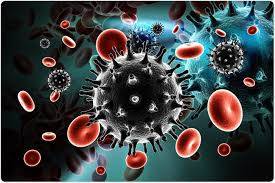Title: The Importance of Awareness and Prevention: Teenage HIV/AIDS
Introduction:
HIV/AIDS is a global health concern that affects millions of people worldwide. While it can affect individuals of all ages, the impact on teenagers and young adults is particularly significant. In this article, we will explore the specific challenges related to teenage HIV/AIDS, the importance of awareness and prevention, and the steps we can take to address this issue.
Understanding Teenage HIV/AIDS:
Human Immunodeficiency Virus (HIV) is a virus that attacks the body's immune system, making it vulnerable to infections and diseases. Acquired Immunodeficiency Syndrome (AIDS) is the advanced stage of HIV infection. Teenagers who contract HIV face unique challenges due to their developmental stage, limited access to resources, and social factors.
Challenges Faced by Teenagers:
1. Lack of awareness: Many teenagers have limited knowledge about HIV/AIDS, how it spreads, and methods of prevention. The absence of comprehensive sexual education programs in some regions exacerbates this lack of awareness.
2. Stigma and discrimination: Teenagers living with HIV often face social stigma, leading to feelings of isolation, shame, and low self-esteem. This stigma can inhibit their ability to seek support and disclose their status to others.
3. Limited access to prevention and healthcare services: Some teenagers may face barriers, such as lack of access to contraception, testing facilities, and HIV counseling. This can contribute to the transmission of the virus and delay diagnosis and treatment.
Importance of Awareness and Prevention:
1. Education and awareness programs: Comprehensive sexual education, including information about HIV/AIDS, should be integrated into school curricula. Open discussions, workshops, and awareness campaigns can help dispel myths, reduce stigma, and empower teenagers with the knowledge to make informed decisions.
2. Accessible healthcare and support: Governments, healthcare providers, and NGOs need to ensure that prevention methods, testing facilities, and support services are readily available and accessible to teenagers. This includes confidential testing and counseling centers, youth-friendly healthcare facilities, and peer support groups.
3. Promoting safe practices: Encouraging safe sexual practices, such as condom use and regular testing, is crucial. Engaging teenagers in open dialogues about contraception, consent, and healthy relationships can empower them to make responsible choices and prevent HIV transmission.
Empowering Teenagers:
1. Peer-to-peer education: Utilizing peer educators who are trained in HIV/AIDS awareness can be an effective approach. Teenagers often trust and relate more easily to their peers, making this method more relatable and impactful.
2. Engaging social media and technology: Leveraging social media platforms and technology to disseminate accurate information, promote awareness campaigns, and provide virtual counseling and support can reach a wider teenage audience.
Conclusion:
Teenage HIV/AIDS remains a significant concern globally. By prioritizing awareness and prevention efforts, we can equip teenagers with the knowledge and resources needed to protect themselves and make informed decisions. Governments, schools, healthcare providers, and society as a whole must join hands to ensure accessible healthcare services, comprehensive sexual education, and destigmatization of the virus. Let us work together to create a future where no teenager has to face the devastating impact of HIV




No comments yet
Be the first to share your thoughts!